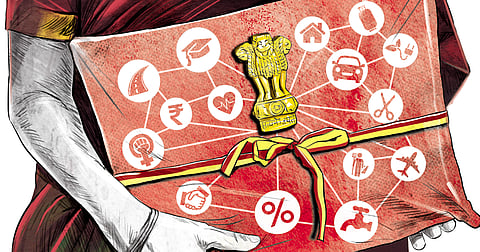

KERALA: Finance Minister KN Balagopal’s budget speech has focussed on the troika of infrastructure, tourism and technology to make Kerala a “sunrise economy”. On transport infrastructure, the budget has reaffirmed support to the Silver Line project, or K-rail, and the Thiruvananthapuram and Kozhikode metro projects.
While K-Rail can address the need for high-speed rail connectivity, the two light metro systems will reduce traffic bottlenecks in two of Kerala’s largest cities, improving the quality of life and attracting business investments. The FM has made allocations for the upgrading of 11 industrial parks in the state and announced that 25 new private industrial parks will be given approval in the coming year.
There is an announcement of a Chinese-style special development zone to develop Vizhinjam. However, the FM must keep in mind that the Chinese model involves suspension of labour laws within the economic zone and considerable discretionary powers granted to the management to bypass normal rules and regulations. It remains to be seen whether the Kerala government will be able to provide such freedom of business as the Chinese. Secondly, the Chinese model centres around building integrated townships rather than export processing enclaves, which has been the norm in India.
Academic research on special economic zones has shown that it is difficult to replicate foreign models without adopting it to local contexts. Other ports like Azhikkal, Kollam and Beypore have also received financial support in the budget for the development of cargo movement, public transport and tourism.
The budget has announced many schemes for the tourism sector, along with innovative projects such as safari parks, light and sound shows, eco-tourism, etc. Kerala’s tourism sector -- which, at one time, was the role model in the country -- is in need of revitalisation to keep up with the rapid transformation of travel destinations within India and in neighbouring countries. With a surge in interest nationally to travel to Lakshwadeep, a Beypore-Lakhswadeep-Kochi tourist circuit can be explored.
On technology, the budget has made generous allocations for science and technology research, particularly to digital universities. The health sector in Kerala is proof that a two-tier model of public healthcare for welfare and private healthcare for growth can do wonders. A similar model holds promise for higher education. Recognising that the state alone cannot fulfil the higher education needs of the youth, the government has promised to incentivise private investment in the university sector, including the setting up of campuses of foreign universities. If the government manages to attract reputed universities to open campuses in Kerala, it will help reverse brain drain and create an innovation-based economy.